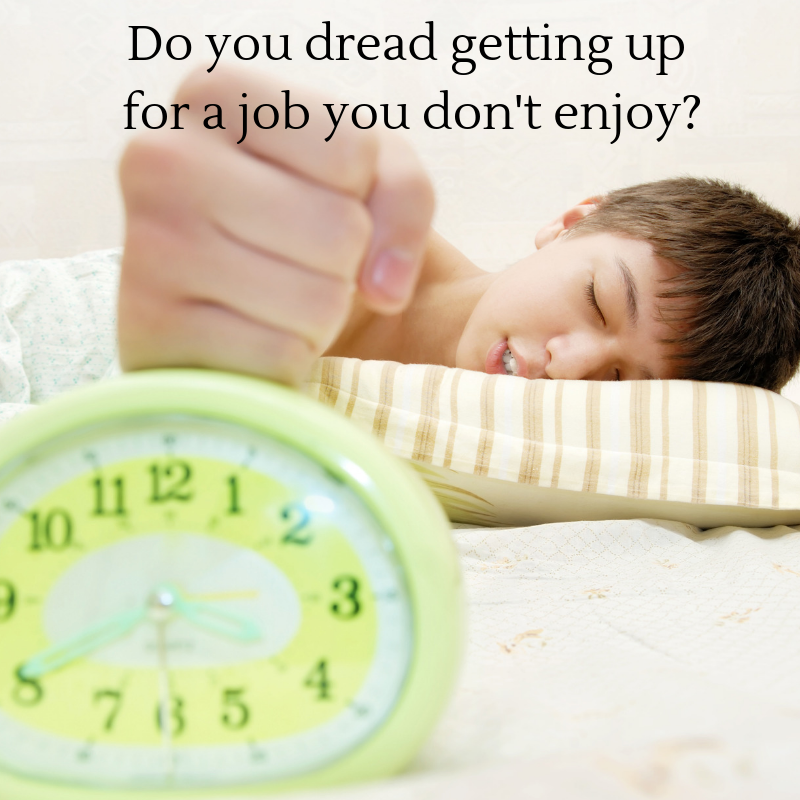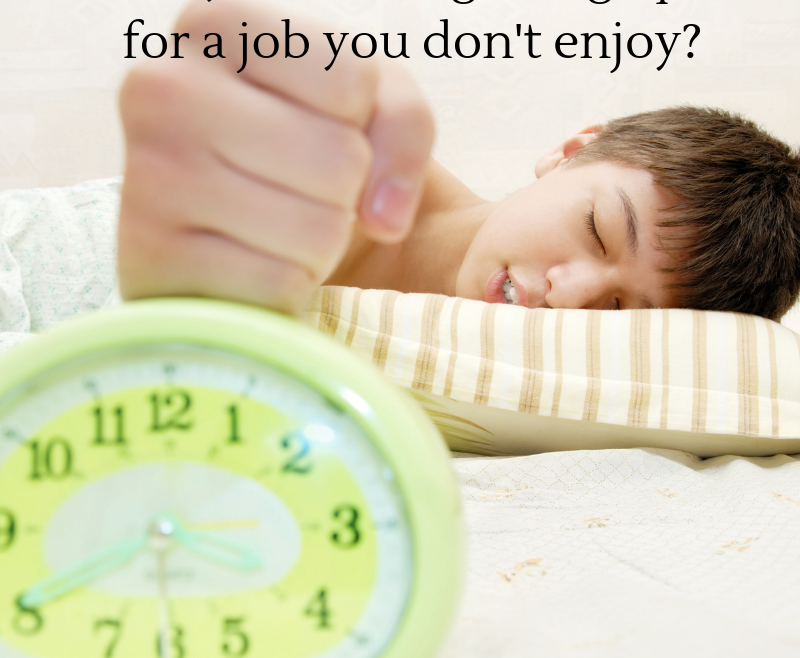If you want to like your work, I think there are two separate pieces of that puzzle:
- Choosing the right job — whether that’s working for someone else or for yourself, you pick work that suits you.
- Making the best of the job — once you’re in it, you actively cultivate it to meet your needs.
A recent article in The New York Times headlined, “A Deceptively Simple Way to Find More Happiness at Work,” showed how low the bar can be on that second point:
A study from the Mayo Clinic found that physicians who spend about 20 percent of their time doing “work they find most meaningful are at dramatically lower risk for burnout.” But here’s what’s fascinating: Anything beyond that 20 percent has a marginal impact, as “spending 50 percent of your time in the most meaningful area is associated with similar rates of burnout as 20 percent.”
In other words: You don’t need to change everything about your job to see substantial benefits. A few changes here and there can be all you need.
If you work full time, the Mayo Clinic study suggests you might lower your stress level by spending the equivalent of just one day a week doing work you find meaningful. So four days a week can still be filled with tedious meetings and administrative bureaucracy and you can feel good about your work.
I find that liberating. If you’re searching for a new job, the goal isn’t finding a place where you love every moment of every day, but something so much easier to achieve. And if you want to improve your current gig, maybe you don’t have the move the needle very far.
Do you know what percent of a typical week is spent on work you find meaningful? Here’s one way the Times suggests to do the math:
For a full week, carry a notepad at all times. Draw a line down the center of a page and label one column “Love” and the other column “Loathe.” Whenever you perform a task, no matter how small, be mindful of how it makes you feel. Are you excited about it? Do you look forward to it? Does time fly when you’re doing it? Or did you procrastinate, dreading every moment and feeling drained by the time you’re done?
After you’ve tallied your weekly tasks, here’s one way I’d recommend improving your percentages:
- Look at the tasks you love and make notes about why you love them. Do they have features in common? Are they the times when you get to work with your favorite co-workers or when you put your head down solo? Are they about challenge and learning new things or when you feel like a master of what you already do well?
- Do the same for the tasks you loathe. What makes you dislike these parts of your job? Look for the similarities here, too.
- Consider whether you can bring some of what you love to your loathed tasks. If that work has to get done, is there a different way to do it that would feel like a better fit for you?
- Can you rejigger your work responsibilities to do more of the work you love and less of what you loathe? Maybe you can delegate some tasks to free up time for what you love (which is likely what you’re good at, because you’re putting your heart into it).
For some help naming what’s happening with the work you love or missing from what you loathe, you might consult this needs list from the Center for Nonviolent Communication.
Does even 20% sound like too much to ask?
 There are plenty of reasons people stick with a miserable job, but here’s one I hadn’t heard articulated this clearly until I read I Spent 15 Years Studying Why People Hate Their Jobs. This Is the Top Reason on Inc. Career coach calls out the perils of praise addiction:
There are plenty of reasons people stick with a miserable job, but here’s one I hadn’t heard articulated this clearly until I read I Spent 15 Years Studying Why People Hate Their Jobs. This Is the Top Reason on Inc. Career coach calls out the perils of praise addiction:
We’ve been trained to seek out incentives like good grades, stickers, trophies, and yes, praise. We like to be liked. More important, we like to be respected. We want people to be impressed with us. It gives us a temporary feeling of happiness.
The problem is we end up making career choices to impress other people so we can feel that fleeting rush of validation. In the process, we lose sight of what makes us truly happy. With each career move, we get unhappier. The more we try to impress, the more frustrated we feel.
Don’t believe me? Let me ask you this simple question:
What do you do?
Those four words are the reason so many people are unhappy with their careers. Most people want to answer with something impressive. They want others to respect what they do. Why? As humans, we worry about how our response is received, and for good reason! We know the person who hears the answer will start to judge us. That’s because we judge those who tell us what they do for a living too.
If look at your love/loathe list and the scales are tipping too heavily toward loathe, does praise addiction sound like a factor in why you’re still there?
Whether you’d like to make tweaks to your current job or find a new role that’s a better fit, here are some past blog posts to help you get there:
- Are you feeling uninspired going to work today? How can you change that?
- How to like your current job more
- What it takes to make the workplace better
- Is your job killing you?
- Career advice from my college newspaper adviser: Everyone’s first job is hard
- If you haven’t found one true calling, maybe you’re a multipotentialite
- Still looking for your dream job? Keith Ferrazzi helps you find it
- Four questions from Steven Pressfield to help you find your calling


Leave a reply